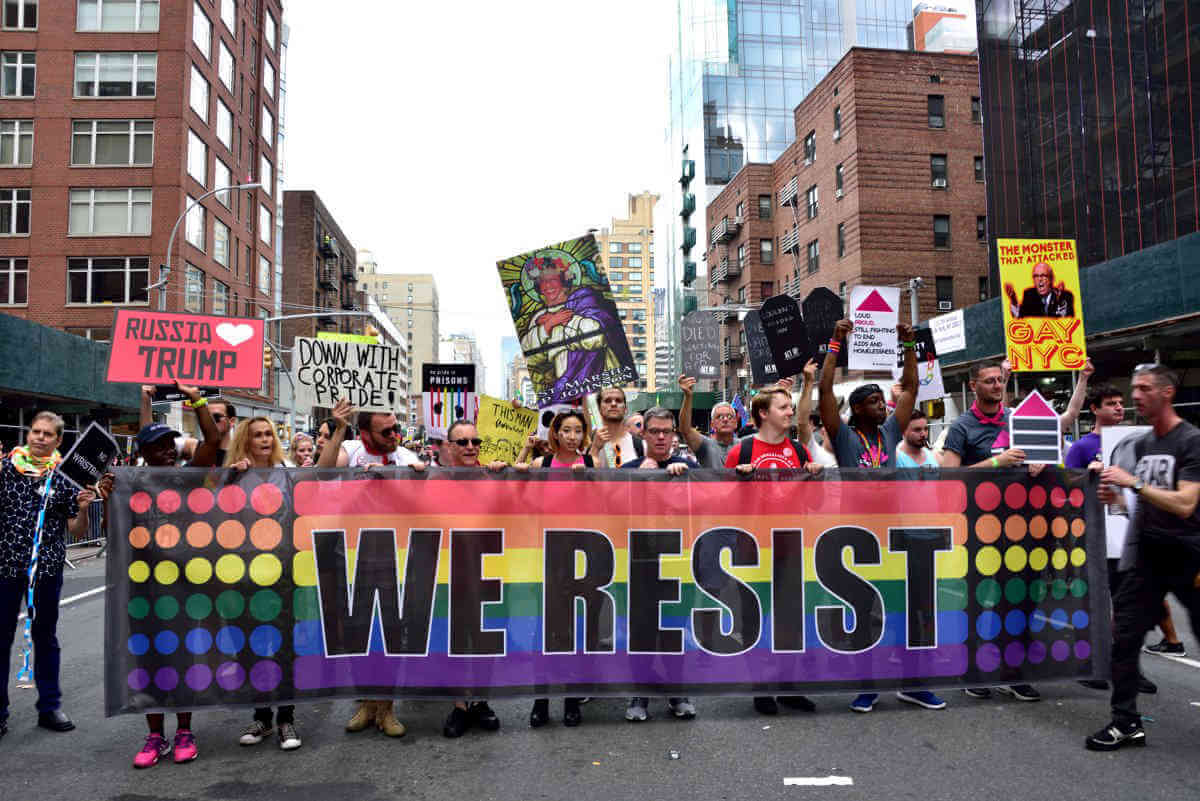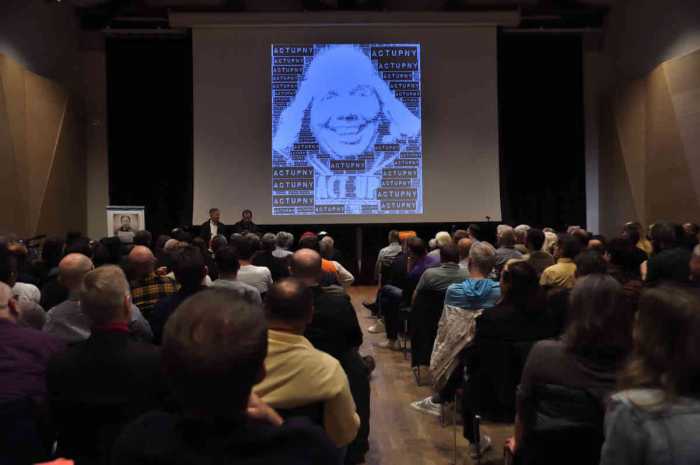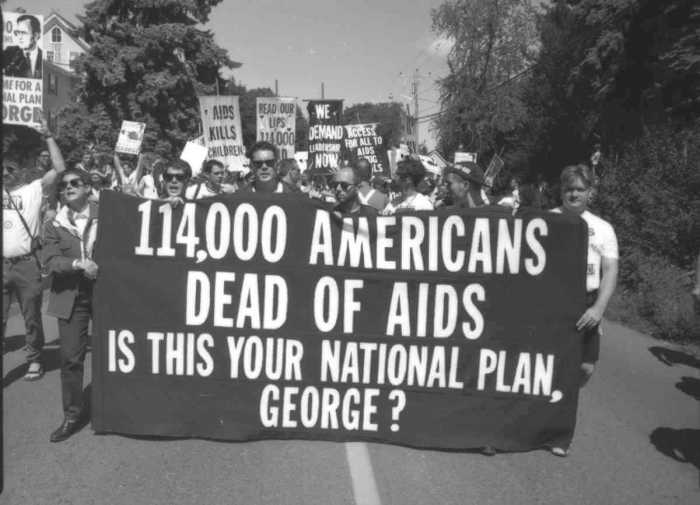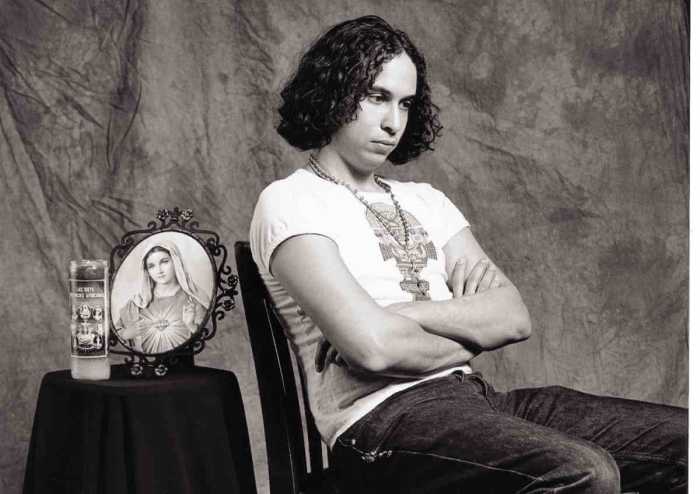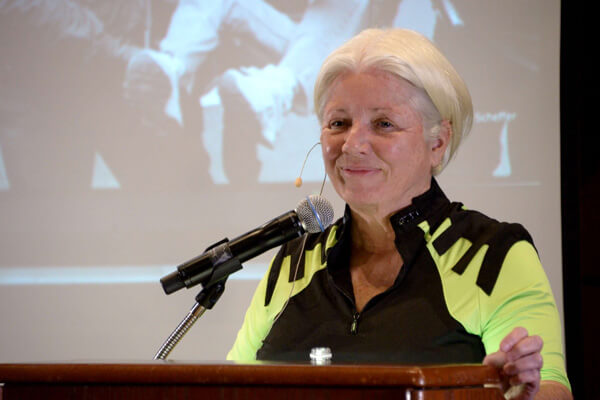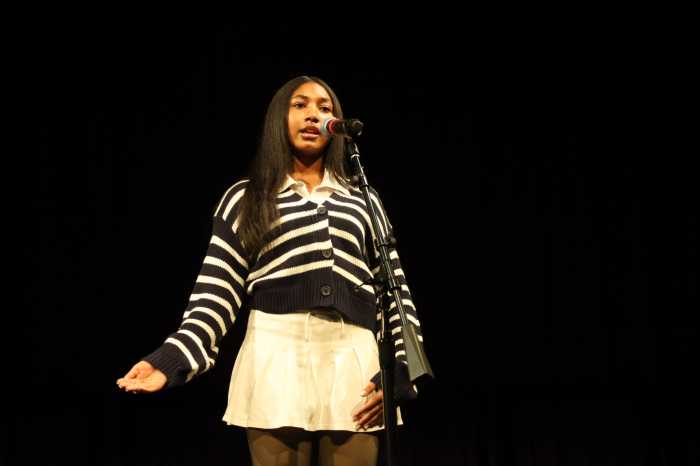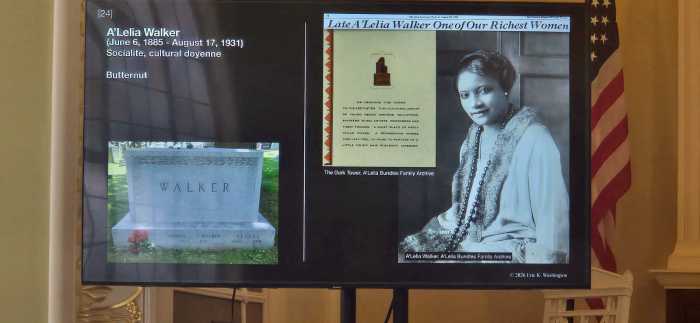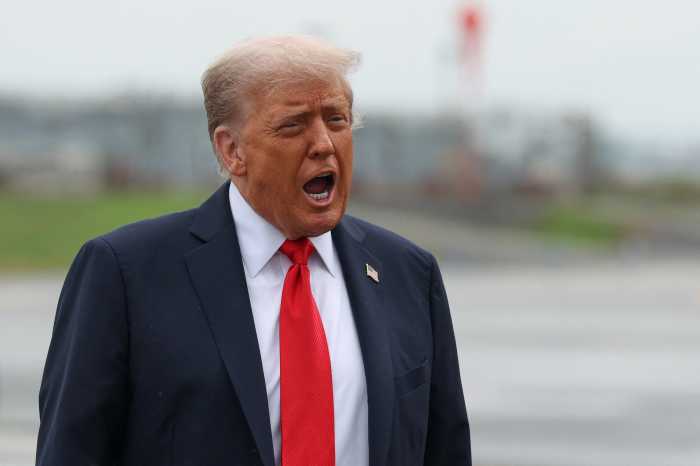Activists who are challenging how New York City’s Pride Parade is run and how it represents the queer community held a town hall meeting to discuss this year’s parade and to plan next steps for the 2019 event that will mark the 50th anniversary of the Stonewall riots, which marked the start of the modern LGBTQ rights movement.
“We decided the most important thing of all, we created this march,” said Karla Jay, the author and a member of the Gay Liberation Front (GLF), an early radical LGBTQ group that was involved in organizing the first march in 1970 that commemorated the riots. “You, the people who are here, you are the true inheritors of this march, we created it for you. We did not create it for Citibank.”
Jay was among roughly 10 former GLF members who attended the August 31 town hall, which was held at the Lesbian, Gay, Bisexual & Transgender Community Center. More than 100 people attended the two-hour event.
While New York City’s Pride Parade presents an image of unity to the large crowds that line the march route every year, it has frequently been the subject of controversy. In recent years, the most common complaint is that organizers have abandoned the event’s radical roots and turned it over to the corporations that sponsor the parade.
The 2018 parade, which was a dry run for the 2019 parade, was notable for the frontloading of sponsors, elected officials and candidates for public office, and city and state government agencies so that they could be seen in the three-hour live broadcast of the parade that was carried by WABC-TV.
Heritage of Pride (HOP), the group that organizes the parade and related events, has argued that the corporations represent employee resource groups and their contingents are comprised of LGBTQ employees and their allies. For activists, the floats and large contingents fielded by sponsors are little more than ads that do not reflect the authentic LGBTQ community.
The 2018 march route — which began in Chelsea, headed south on Seventh Avenue, east on Christopher and Eighth Streets then north on Fifth Avenue to end at 29th Street — was controversial as was limiting contingents to no more than 200 marchers. The new route was supposed to reduce the duration of the parade, but it only shaved 24 minutes off of the 2017 parade, which ended at 9:38 p.m. The parade begins at noon on the last Sunday in June. HOP allowed 13 contingents, including 11 sponsors, to exceed the 200-marcher limit, after telling activists that part of the rationale for the limit was to reduce the size of sponsor contingents.
“They failed at everything they wanted to do,” said Bill Bahlman, a longtime LGBTQ activist, referring to HOP.
The Reclaim Pride Coalition, which represented the counter view on the parade this year, organized the town hall. Members of the Coalition confronted HOP at some of that group’s public meetings and, since this June’s parade, had at least one private meeting with HOP.
“We presented them with a vision of a major civil rights march,” said Ann Northrop, a longtime lesbian and AIDS activist, referring to the 2019 parade. “This was a whole new idea to them.”
While the town hall did not produce any concrete plans for 2019 or how the Coalition should proceed in its challenge to HOP, members did begin the process of organizing committees and they invited attendees to join them at regular Saturday afternoon meetings that are held at the Center. They agreed that they would continue to pressure HOP to change. Coalition members were told HOP would host a town hall about next year’s parade on August 13.
“We need to make this hurt for them,” said Alex Leitch, a Coalition member, during the town hall.
Members were divided on what the 2019 parade should look like, with some expressing the view that a more celebratory event is correct and others wanting more overtly political content. There was some discussion of having an alternative march. Founders and organizers of the Dyke March, which always takes place the Saturday evening before the Pride Parade, turned out to support the Coalition, but also to push back against any plan that would impinge on the Dyke March.
“You absolutely cannot step on the Dyke March,” one organizer said. “We will fuck you up.”

